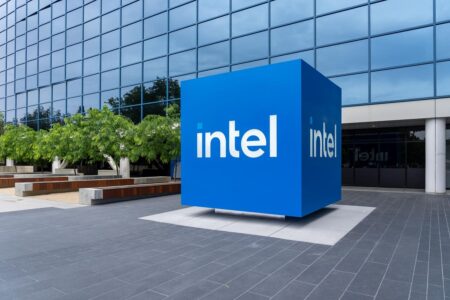The best performing sector in the stock market for the past year has been the unsung financial sector. Its 24% return for the year through May 31 was nearly double the return on the market as a whole.
Unlike technology or biotech, financial stocks don’t get people very excited. There’s no tantalizing hint of instant riches from investing in banks, insurance companies, credit-card companies and the like. Where’s the glamor?
Yet many financial stocks, in their unobtrusive way, have been excellent investments over the years. In the past decade, Mastercard Inc. (MA) has returned 577%, Visa Inc. (V) 481%, J.P. Morgan Chase & Co. (JPM) 419%, American Express Co. (AXP) 341%, and Goldman Sachs Group Inc. (GS) 257%.
For comparison, the Standard & Poor’s 500 Total Return index has returned 243%, including dividends.
Here are five financial stocks that I think are promising investments now.
Goldman Sachs
It’s no coincidence that three U.S Secretaries of the Treasury – Robert Rubin, Henry Paulson and Steven Mnuchin – were Goldman Sachs alumni. Goldman in my opinion is the most prestigious investment banking firm in the country, though Morgan Stanley would dispute that.
In the past ten years, Goldman has grown its revenue by an average of 9% a year, and its profits by an average of 14%. Analysts are divided on the stock, with 13 recommending it and 10 giving it a tepid “hold.”
I notice, however, that some analysts for whom I have considerable respect are in the “buy” camp. That includes Kian Abouhossein of J.P. Morgan and Mike Mayo of Wells Fargo.
J.P Morgan
I’ve done business with J.P. Morgan for about 17 years (it is the custodial broker for my hedge fund), so I may not be completely objective. But I find the value compelling here. The company posted a strong return on equity, 17%, in the past four quarters. Yet the stock is fairly cheap, at 13 times earnings.
In addition to running a large brokerage and investment banking operation, the company owns Chase Bank, one of the largest commercial banks in the U.S. Jamie Dimon, the CEO since 2006, plans to retire within “several” years, but in the meantime, I view him as a big plus.
In the past 30 years, J.P. Morgan has been profitable every year, even in the Great Recession of 2008. The U.S. government has turned to it to take over troubled firms such as Bear Stearns in 2008 and First Republic Bank in 2023.
Progressive
Boasting a sparkling 34% return on equity in the past year, Progressive Corp. (PGR) is an auto and home insurer based in Mayfield Village, Ohio. You may know it from its quirky TV commercials, featuring wry humor and a woman named Flo.
In auto-insurance market share, Progressive has been gaining on rival State Farm and has moved well ahead of Allstate.
In home insurance, Progressive has also gained market share, but I worry that it has heavy exposure to hurricane-plagued Florida. The company stopped issuing new home insurance policies in Florida in 2022, and has said that it won’t renew certain existing policies there.
The stock is up 935% over the past decade.
East West
Based in Pasadena, California East West Bancorp. (EWBC) does some business in China and serves the Chinese-American population in many U.S. cities. Despite a terrible relationship between the U.S. and China, East West’s stock has climbed 33% in the past year.
If that relationship ever thaws out, I would expect East West to benefit. Meanwhile, East West has posted a respectable return on equity in the past year, above 15%. The stock seems modestly priced to me at about 11 times earnings.
The bank’s executive team, led by Dominic Ng as chief executive officer, is well aware of the touchy state of U.S.-China relations. The word “China” does not appear once in the bank’s 2024 annual report.
Main Street
Main Street Capital Corp. (MAIN), from Houston, Texas, invests in, and lends to, medium-sized and small private businesses. Its web site lists more than 100 companies with which it has done business.
The firm has been profitable 19 years in a row, and has been publicly traded since 2007. Analysts disdain it (five “hold” ratings and only one “buy”), partly because they believe it may have to cut its dividend. It so, the cut will come from a rich starting point. The dividend yield right now is 7.2%.
Disclosure: I own J.P. Morgan shares personally and for most of my clients. I own Goldman Sachs and Progressive for some clients. My wife, who is a portfolio manager at my firm, owns Progressive personally and for clients.
John Dorfman is chairman of Dorfman Value Investments LLC in Boston, Massachusetts. He or his clients may own or trade securities discussed in this column. He can be reached at [email protected].
Read the full article here











